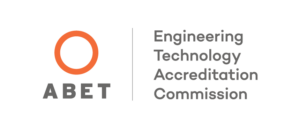Civil Engineering Technology BSCivET

The Bachelor of Science in Civil Engineering Technology (BSCivET) program educates and trains students for industrial positions requiring a sophisticated, applied technical orientation in planning, designing, building and maintaining infrastructure and facilities. The curriculum consists of an integrated sequence of undergraduate courses emphasizing the application of engineering and scientific knowledge, methods, technology and technical skills appropriate to the civil engineering technology discipline. The program graduates are capable of solving design and applied-engineering problems, as well as performing managerial, business and sales functions. The graduates work in areas such as transportation, water systems, utilities, structures, pollution control, surveying, soil mechanics and foundations. Job responsibilities would include design, development, liaison, cost estimation, supervision, installation, testing, maintenance, services or sales. The civil engineering technology profession has substantial career opportunities, excellent average starting salary, very good median long-term salary, robust job growth, and great career fulfillment. The demand for the program graduates will further increase, as the $1 trillion Infrastructure Investment and Jobs Act is implemented over the next eight years.
The program is offered by the Lee Gildart and Oswald Haase School of Computer Sciences and Engineering (GHSCSE) at the Metropolitan Campus, Teaneck, New Jersey. The BS in Civil Engineering Technology program is accredited by the Engineering Technology Accreditation Commission of ABET.
The faculty members maintain excellent communication with the industry and encourage students to gain industrial experience through cooperative education. Laboratory and industry-oriented project assignments complement the lectures and recitations throughout the program to provide students with these learning opportunities that are crucial to their success in the workplace. Students work in state-of-the-art laboratories. A capstone project based on an approved written proposal is required in the eighth semester for all students.
Professional Accreditation

The B.S. in Civil Engineering Technology program is accredited by the Engineering Technology Accreditation Commission of ABET, https://www.abet.org.
Educational Objectives
The educational objectives of the B.S. in Civil Engineering Technology program define the career and professional accomplishments that the graduates are being prepared to achieve three to four years after graduation. The program will produce graduates who:
- Enter into and advance their careers in the planning, design, construction, operation or maintenance of buildings and infrastructures utilizing their theoretical knowledge and practical skills in analyzing and designing systems or structures, specifying construction methods and materials, performing cost estimates and analyses, and inspecting and managing civil projects.
- Continue their formal education and obtain advanced degrees such as M.S. in construction management, M.B.A. (industrial management), M.S. in environmental studies, M.S. in technology management or other related fields.
- Continue to conduct themselves as both responsible professionals and global citizens who are aware of and who understand ethical issues and societal needs and problems.
These objectives are consistent with the mission of Fairleigh Dickinson University to educate and prepare students as world citizens through global education. They also fulfill the needs of the program constituencies, which include students, alumni, employers, faculty, and the Industrial Advisory Board.
Student Outcomes
Each civil engineering technology graduate will demonstrate the following attributes and achievements as required by the ETAC of ABET upon or before graduation:
- An ability to apply knowledge, techniques, skills and modern tools of mathematics, science, engineering, and technology to solve broadly-defined engineering problems appropriate to the discipline;
- An ability to design systems, components, or processes meeting specified needs for broadly-defined engineering problems appropriate to the discipline;
- An ability to apply written, oral, and graphical communication in broadly-defined technical and non-technical environments; and an ability to identify and use appropriate technical literature;
- An ability to conduct standard tests, measurements, and experiments and to analyze and interpret the results to improve processes; and
- An ability to function effectively as a member as well as a leader on technical teams.
Cooperative Education or Work Experience Option
Students in the B.S. in Civil Engineering Technology program have the option to undertake a cooperative education experience and earn a total of 6 academic credits toward their technical electives. The co-op experience provides students a real-world grounding, linking theory and practice, academic and industrial experiences, and college education and lifelong learning. It better prepares students for jobs, gives them a competitive edge in the job market, helps them develop networking skills and professional contacts and allows them to experience career fields before graduation. Industry benefits from better-prepared graduates with real and relevant work experience – saving time and money by reducing the training period for new employees.
Instead of undertaking cooperative education, students may earn up to 6 academic credits for appropriately documented industrial experience (Work Experience) counted toward their technical electives. Note that credits earned from industrial experience and/or cooperative education may not be substituted for any required course work and that they altogether may not exceed a total of six credits. Students must have successfully completed the course EGTG2210 Technical Communications before the application for “Work Experience” credits can be considered. The application form and directions for submission of necessary documents in support of the application may be obtained from the office of GHSCSE.
Degree Plan
The program requires the successful completion of 120 credits with a minimum cumulative grade point ratio of 2.00 as described below.
1st Semester (15 credits)
- ENGR1301 Engineering Practices, Graphics and Design (3 credits)
- MATH1107 Precalculus (4 credits)
- PHYS2101 General Physics I (3 credits)
- PHYS2201 Lab: Physics I (1 credit)
- UNIV1001 Transitioning to University Life (1 credit)
- WRIT1002 Composition I: Rhetoric and Inquiry (3 credits)
2nd Semester (14 credits)
- EGTC1223 Introduction to CAD (2 credits)
- MATH1201 Calculus I (4 credits)
- PHYS2102 General Physics II (3 credits)
- PHYS2202 Lab: Physics II (1 credit)
- UNIV1002 Preparing for Professional Life (1 credit)
- WRIT1003 Composition II: Research and Argument (3 credits)
3rd Semester (17 credits)
- CHEM1201 General Chemistry I (3 credits)
- CHEM1203 General Chemistry Laboratory I (1 credit)
- EGTC1205 Surveying I (3 credits)
- EGTC1245 Construction Materials and Systems (3 credits)
- EGTG2221 Statics (3 credits)
- MATH2202 Calculus II (4 credits)
4th Semester (15 credits)
- EGTG2210 Technical Communications (3 credits)
- EGTG2228 Strength of Materials (3 credits)
- EGTG4221 Engineering Statistics and Reliability (3 credits)
- ENGR1204 Programming Languages in Engineering (3 credits)
- ENGR3000 Modern Technologies (3 credits)
5th Semester (15 credits)
- EGTC3250 Structural Analysis (3 credits)
- EGTC3261 Estimating I (3 credits)
- EGTC4241 Soil Mechanics (3 credits)
- EGTG4254 Fluid Mechanics (3 credits)
- EGTC3257 Concrete Structures (3 credits)
6th Semester (15 credits)
- EGTC4242 Foundations (3 credits)
- EGTG3351 Applied Thermodynamics (3 credits)
- EGTG3431 Dynamics (3 credits)
- EGTC3256 Steel Structures (3 credits)
- Tech Elective (3 credits)
7th Semester (15 credits)
- EGTC4263 Project Management and Control I (3 credits)
- EGTG2215 Circuits I (3 credits)
- EGTG3211 Materials Technology I (3 credits)
- EGTG4269 Management and Engineering Economics (3 credits)
- UNIV2001 Cross Cultural Perspectives (3 credits)
8th Semester (14 credits)
- EGTC3270 Environment and Land Use Planning (3 credits)
- EGTC4385 Civil Technology Design Project (2 credit)
- Technical Electives (6 credits)
- UNIV2002 Global Issues (3 credits)
Technical Electives
The student must take 6 credits of technical electives, to be chosen from the following list:
- CHEM1202 General Chemistry II with CHEM1204 Lab: General Chemistry II
- EGTC4320 Highway Design
- EGTC4321 Bridge Design
- EGTC4322 Hydraulic Design
- EGTC4323 Seismic Design
- EGTM4356 Stress and Vibration Analyses
- EGTC1206 Surveying II
- EGTC4276 Advanced Concrete Design
- EGTC4272 Advanced Steel Design
- EGTC4260 Contracts & Spec.
- EGTC4264 Project Management II
- EGTC3262 Estimating II
Other technical electives may be taken with prior approval from the GHSCSE Director or their designee. Up to 6 credits for work experience or cooperative education experience but not both may be used in place of technical electives.
Program Enrollment and Degree Data
The official fall term enrollments of the B.S. in Civil Engineering Technology program for the last five academic years and the number of degrees conferred during each of those years.
|
|
Academic Year |
Enrollment Year |
Total
|
Degrees Awarded |
|||||
|
1st |
2nd |
3rd |
4th |
|
|
||||
|
Current Year |
2025-2024 |
FT |
1 |
3 |
|
1 |
5 |
Not yet available |
|
|
PT |
|
|
|
|
|
||||
|
1
|
2024-2023 |
FT |
1 |
|
1 |
|
2 |
0 |
|
|
PT |
|
|
|
|
|
||||
|
2
|
2023-2022 |
FT |
|
1 |
|
1 |
2 |
2 |
|
|
PT |
|
|
|
1 |
1 |
||||
|
3
|
2022-2021 |
FT |
1 |
1 |
1 |
5 |
8 |
3 |
|
|
PT |
|
|
|
|
|
||||
|
4
|
2021-2020 |
FT |
4 |
1 |
4 |
4 |
13 |
5 |
|
|
PT |
|
|
|
|
|
||||
FT- full-time, PT- part-time